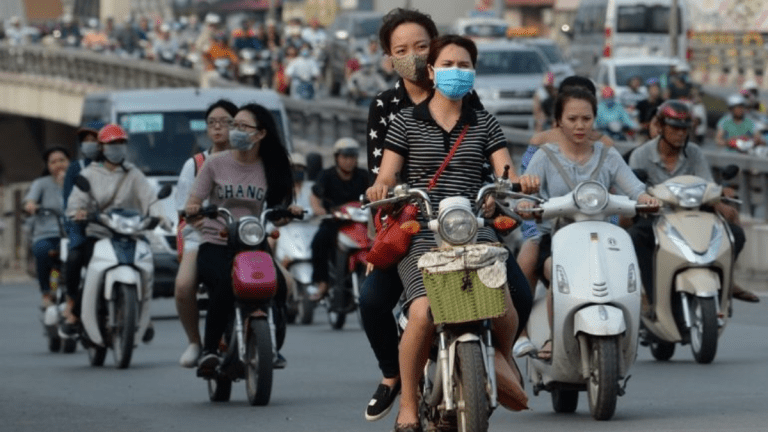
🕒 Last updated on July 15, 2025
Vietnam has announced a major decision to clean up the air in its capital city. Starting July 2025, all fossil-fuel motorcycles and mopeds will be banned from operating in central Hanoi. This area includes the space within and along the city’s main ring road. The ban is part of a nationwide plan to reduce pollution and improve public health.
Hanoi to Enforce Fossil-Fuel Motorcycle Ban from July 2025
Motorcycles are the most common mode of transport in Vietnam, especially in Hanoi, which has over 8 million residents. Out of all the vehicles in the city, nearly 7 million are motorcycles, while just over a million are cars. Many people use their motorbikes to get to work, make deliveries, or provide taxi services.
However, as more people buy vehicles, the air has become increasingly polluted. Thick smog often hangs over the city, making it one of the most polluted capitals in the world. The government believes that banning fossil-fuel-powered two-wheelers is a strong step to bring down pollution levels.
This change is also part of Vietnam’s larger plan to move away from fossil fuels and encourage the use of electric vehicles. A local electric vehicle manufacturer, VinFast, is already selling electric cars and scooters. According to the European Chamber of Commerce, VinFast holds nearly 20% of the electric vehicle market. But for now, only a small number of electric two-wheelers are on the roads.
The Next Phase Will Widen the Ban in 2028
The upcoming ban in July 2025 is just the first part of a two-step plan. In January 2028, the second phase will begin. This phase will cover a much larger area and will include all fossil-fuel two-wheelers, even those that may be allowed in 2025. Some petrol-powered cars will also face new restrictions during this time.
Hanoi’s city center is a busy area full of offices, shopping centers, and government buildings. Every day, thousands of people travel to and from this part of the city on motorcycles. Many workers, including couriers and ride-hailing drivers, rely on two-wheelers to earn a living.
This is why some people are worried about how the ban will affect them. They say they are not ready to switch to electric vehicles, especially when electric bikes are still expensive. Others feel the city needs to improve its public transport system before making such a big change. Without good alternatives, they say, it will be hard for people to follow the rules.
While the plan has received support from many people who want cleaner air, some are asking for more time and better support from the government. They believe that training programs, loan schemes, or discounts on electric scooters could help people make the transition more easily.
Other Actions to Reduce Pollution Across the City
Apart from vehicle restrictions, Vietnam is also rolling out other steps to fight pollution in Hanoi. The government has ordered upgrades to waste-treatment plants to handle trash more efficiently and prevent environmental damage.
Trump Traps Vietnam in Tariff Storm: Is Hanoi the New Trade Pawn?
There are also plans to use digital tools to monitor pollution levels in real time. These tools will help local authorities take faster action when air quality becomes dangerous. It will also give the public better access to pollution updates so they can plan their day accordingly.
Stronger penalties will be introduced for those who break environmental laws. Anyone caught violating pollution rules could face fines. The government also plans to reward people who report pollution violations. This could include factories that release harmful smoke or companies dumping waste into rivers.
These actions are all part of a larger effort to improve Hanoi’s environment and protect its people. Pollution not only affects the look and feel of a city, but it also causes health problems like asthma, lung disease, and heart conditions. Children and the elderly are especially at risk.
The government has asked Hanoi officials to carefully manage the transition, keep the public informed, and make sure rules are enforced fairly. As the city moves forward with this plan, it will be one of the first in Southeast Asia to take such strong steps against two-wheeler pollution.